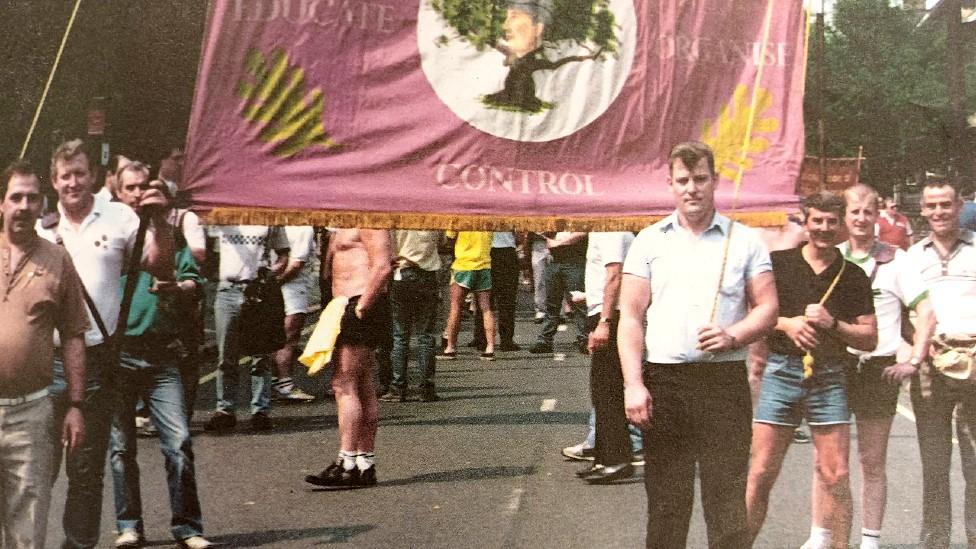When opposing mineworkers met 40 years on
- Published
Two mineworkers from opposite sides of the biggest industrial dispute in post-war Britain have met for the first time.
Ian Pyatt, who worked in Derbyshire, went on strike in March 1984 over plans to shut 20 pits.
Peter Short from Nottinghamshire continued working after a ballot in the county rejected industrial action.
After thinking long and hard about crossing the divide they maintained for 40 years, Ian agreed to meet with Peter.
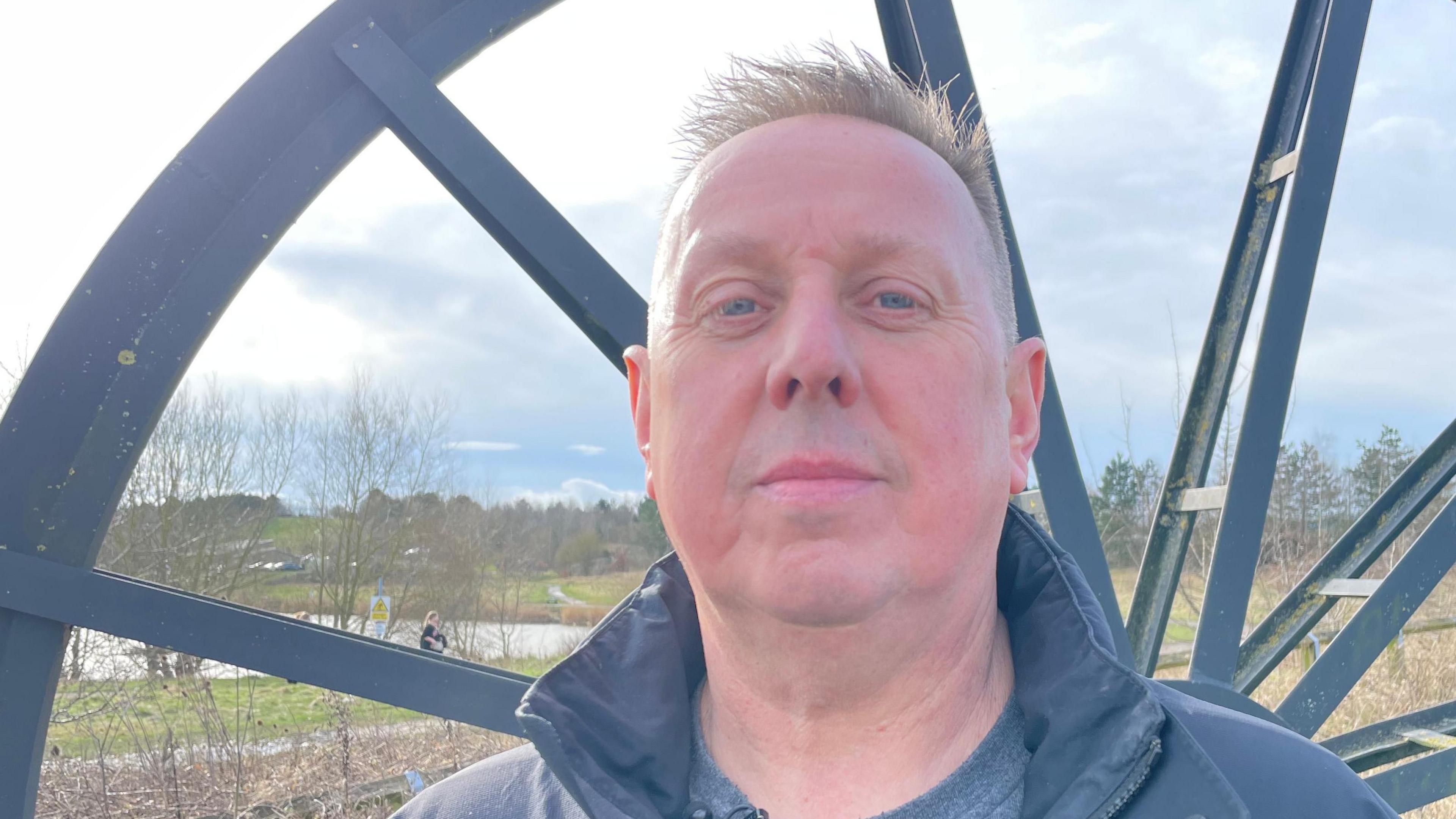
Ian at Poolsbrooke Country Park, where Ireland Colliery used to stand
1984: Counties divided
Ian was one of more than 140,000 miners who went on strike to oppose the pit closures, which were expected to lead to 20,000 job losses. At 18 years old, he was working at Ireland Colliery in North Derbyshire.
He felt strongly it was important to make a stand to protect jobs and communities, explaining that without industrial action it "would have been the green light to close as many pits as they wanted".
The miners' strike was declared on 12 March 1984, despite no national vote being held.
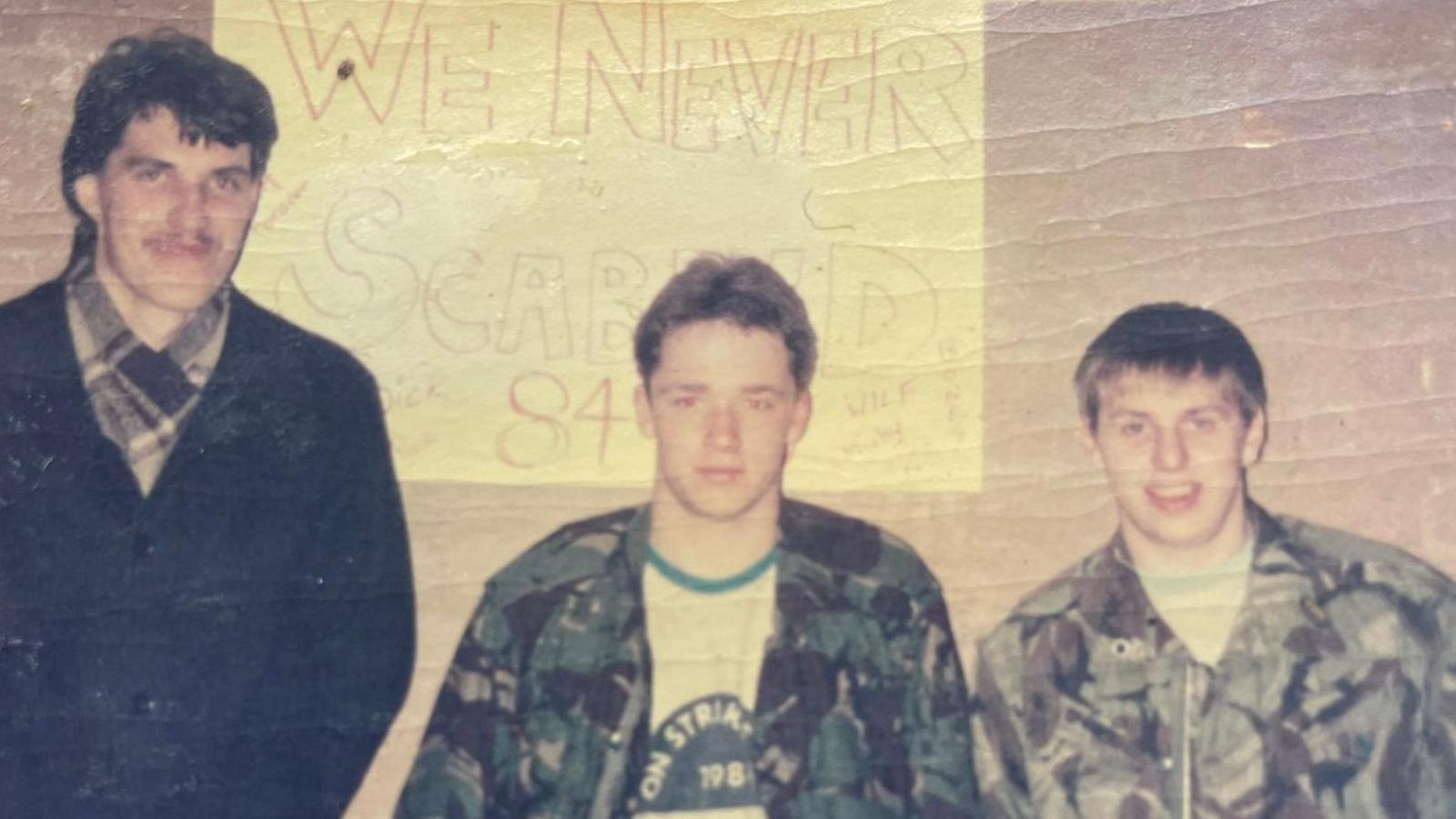
Ian (right) with fellow miners who worked at Ireland pit
Describing his initial excitement, Ian said "it was good to have a bit of identity, to go out out on strike as a pit, as an area and it was important to stick together".
Those who had not joined the strike were labelled "scabs" for what was seen as a betrayal of the working classes. Ian partly blames the subsequent pit closures on those who carried on working during the strike.
He said he had "no respect whatsoever" for the lads who never went on strike and feels more strongly now because he saw it as the "thin end of the wedge, to what has happened now in our society".
"There are people on the dole and they have been for generations and they think it's a way of life. You've got zero hours contracts, you've got people on lesser pensions," he said.
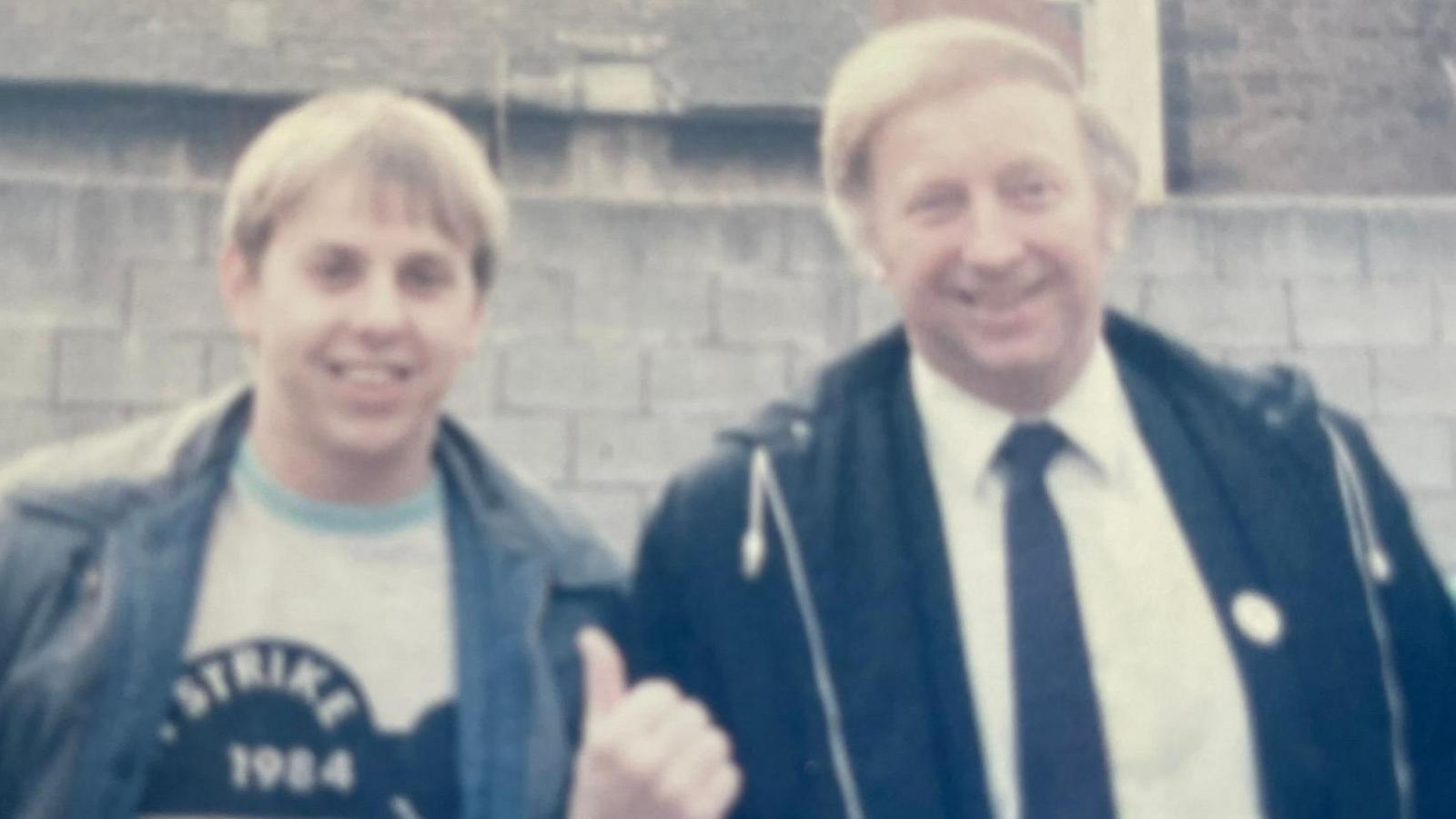
Ian met National Union of Mineworkers president Arthur Scargill, who led the strike
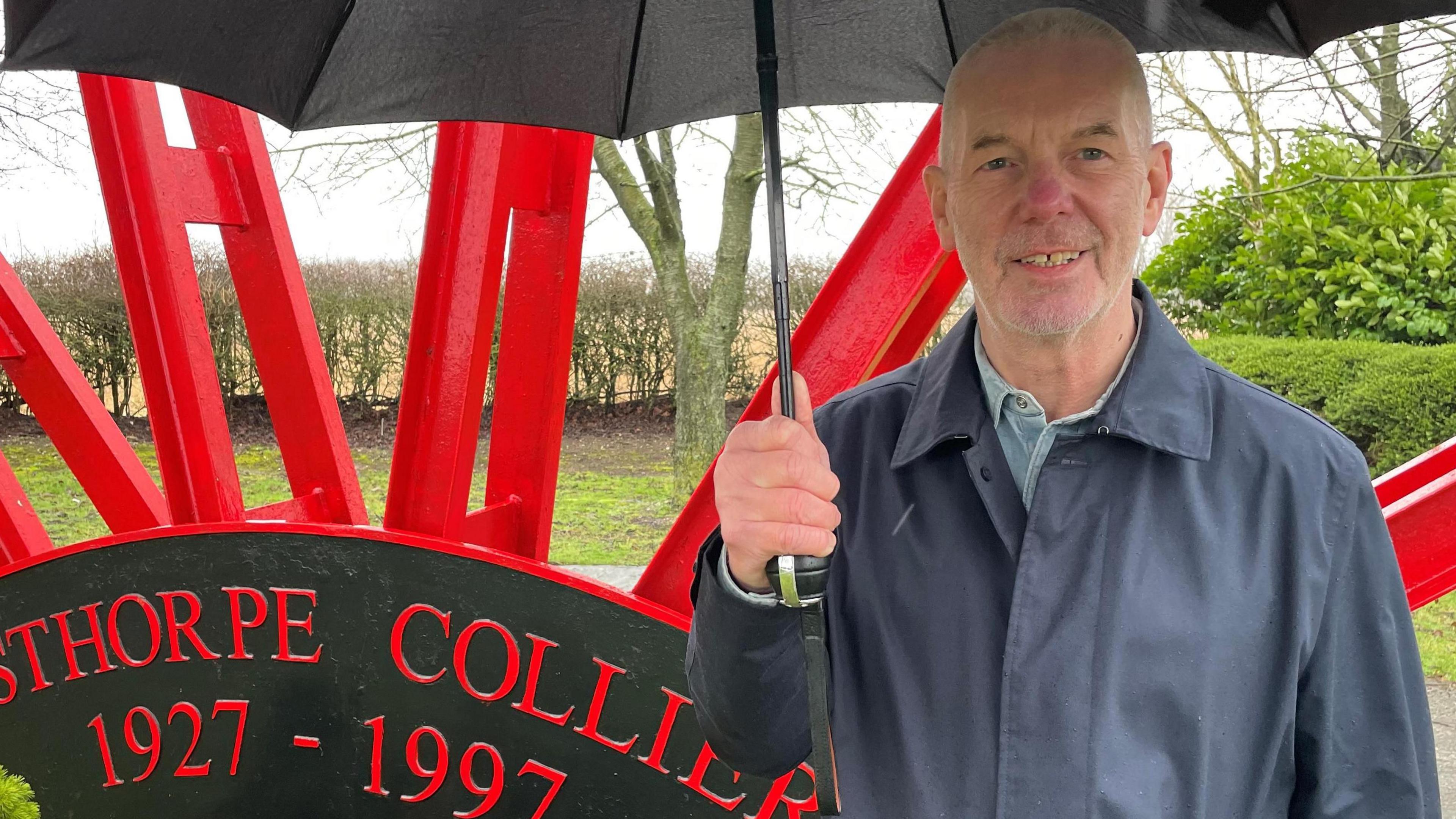
Peter worked at Bilsthorpe Pit throughout the 1984 miners' strike
Peter Short's experiences in neighbouring Nottinghamshire were very different.
An area ballot for the county was held and miners voted overwhelmingly to carry on working.
Only a quarter of those subsequently joined the national strike, according to the National Coal Mining Museum.
Peter, an electrician at Bilsthorpe pit, where he had worked since he was 15, agreed with the cause but respected the vote and carried on working.
He explained it "wasn't nice going back to work when everyone was on strike", but felt it was the right thing to because of the democratic ballot.
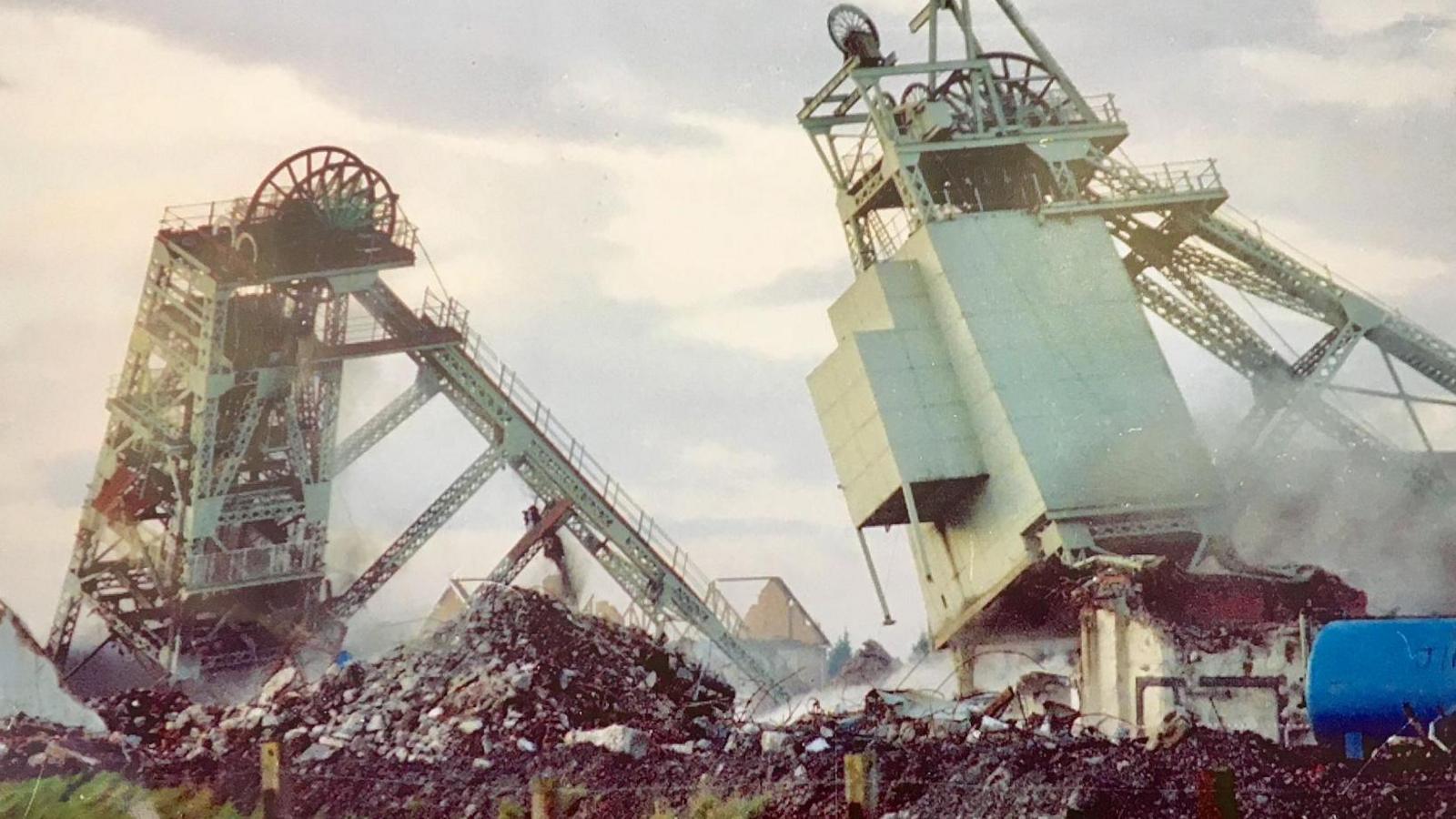
Bilsthorpe Pit was demolished in 1997
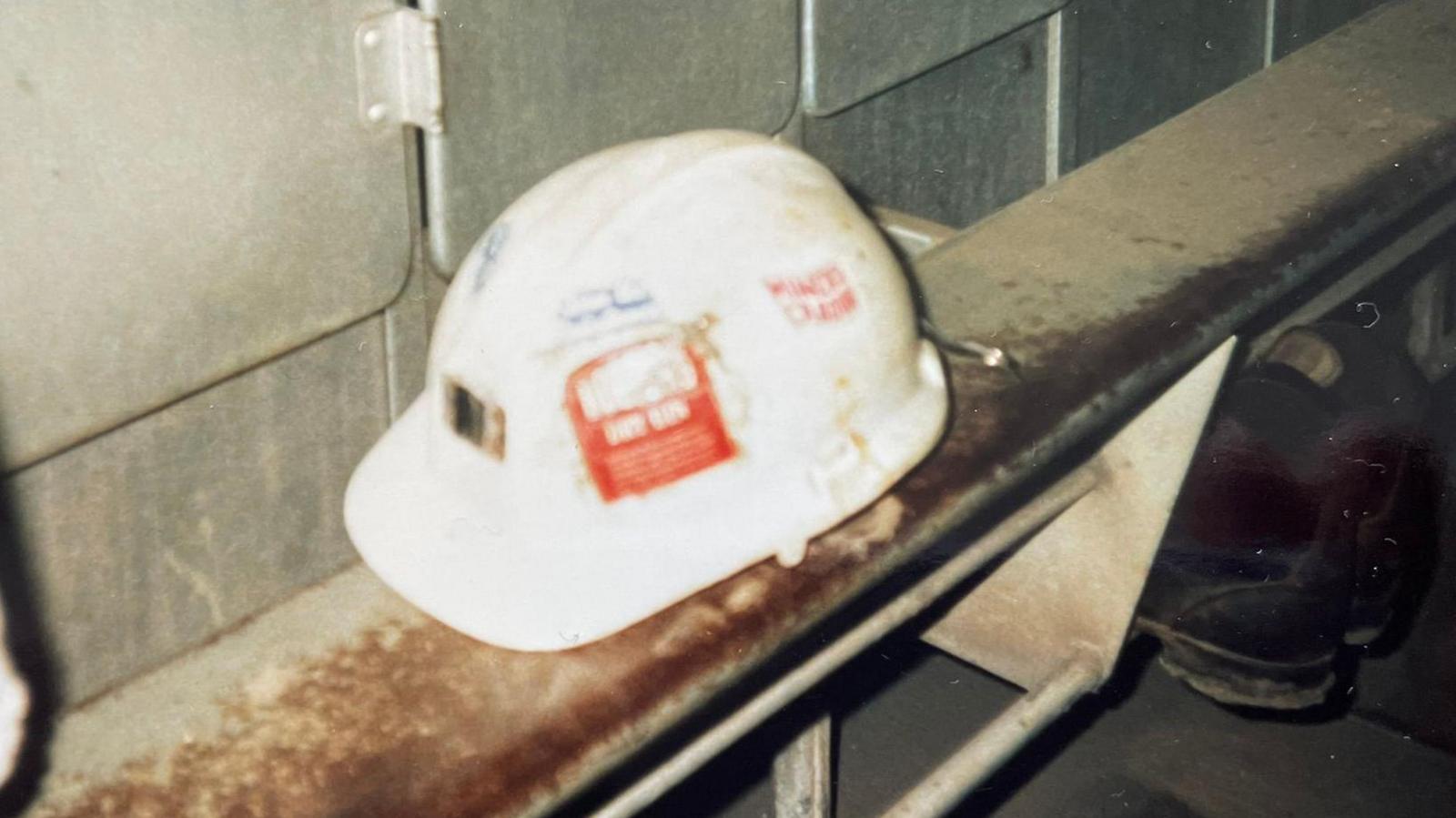
Ian took this photo ahead of his last shift at Ireland Colliery, which closed in 1986
He believes if there had have been a national ballot, Nottinghamshire miners would have joined the strike and there would have been a different outcome.
But with some miners still working and police protecting coal deliveries, the union's position was weakened. Defeated miners returned to work on 5 March.
The pit closures prompting the strike were just the start, with many more over the next decade. They included 32 announced in 1992 as natural gas became the fuel of choice for power stations.
There are now no deep coal mines left in the UK.
2024: The meeting
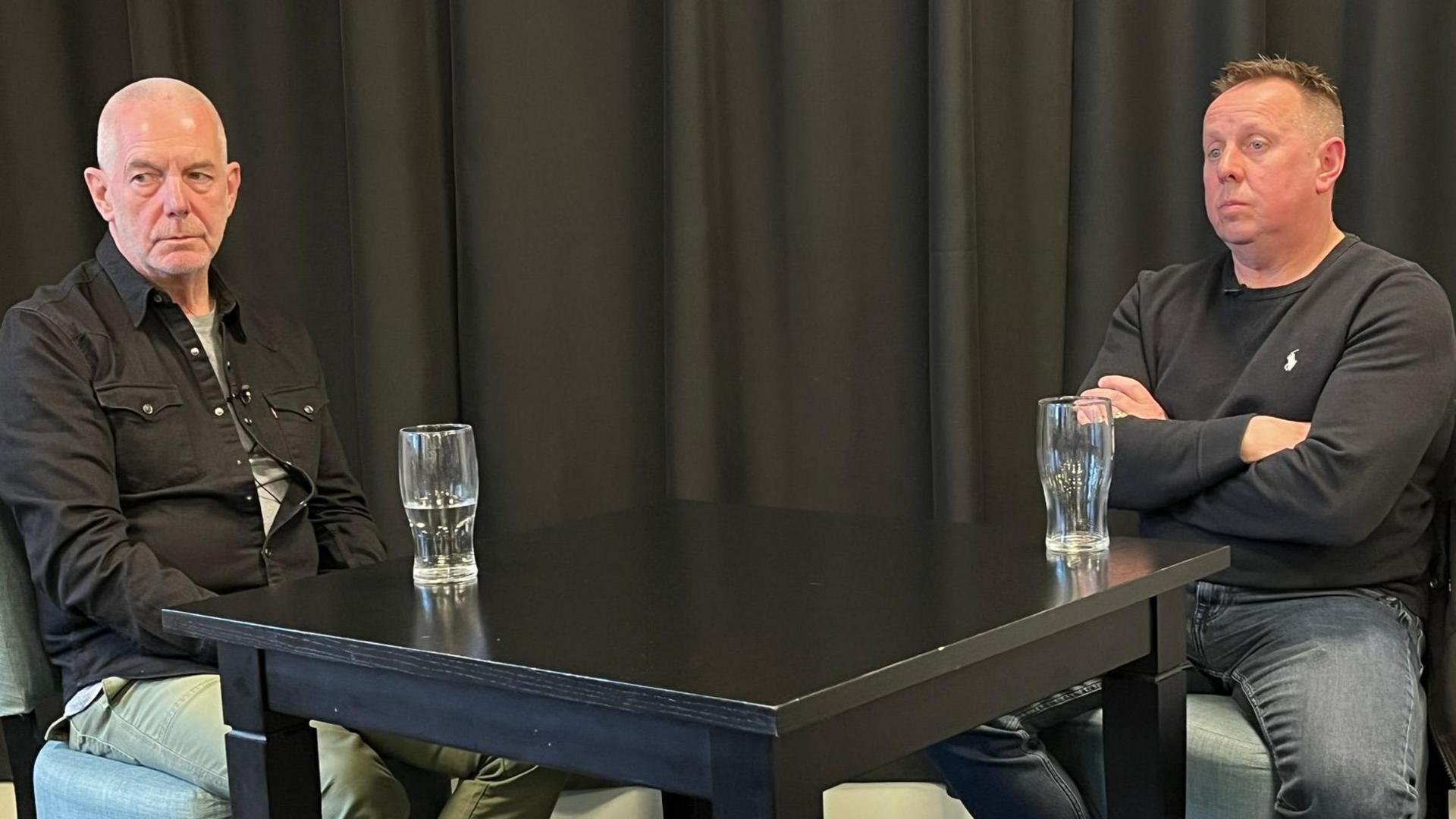
Peter Short and Ian Pyatt met at a miners' welfare club
Ian was the first to arrive at Shirebrook Miners Welfare, on the border of Nottinghamshire and Derbyshire. As he waited, he said he would not speak to Mr Short directly.
He also expressed concerns about the discussion going "round in circles like Tom and Jerry".
Peter was a little more optimistic ahead of the meeting, saying he felt it was good they had both agreed to it as "it was a big thing and a good thing".
Once they were both in the room, there were no handshakes - the greeting was chilly.
The main division remained over the issue of a national ballot. Peter believed having one would have united the miners like it had in previous years.
"We had two strikes in 1972 and 1974 which were successful," he said. "Both came about because of national ballots and that's what I think should have happened."
But Ian disagreed, saying Nottinghamshire miners working in productive pits which were not under threat of closure were only concerned about keeping their wages.
He said: "I don't think it was about the vote, I think it were an 'I'm alright Jack' situation."
After talking further, they did find common ground over the miners pension scandal and in politics, with Peter campaigning for Labour.
"He's campaigning for Labour, as a human being I can't fault him in that aspect," he said. "But what I can't respect is that he chose to work when we were all out on strike."
Peter ended the conversation saying he "didn't think either of us would change views on the central bits, but it's good that you've come and I've enjoyed chatting".
With the tension slightly eased, both said goodbye and left. Still no handshakes, but being in the same room is a partial thawing of the divisions that have endured for 40 years.
Follow BBC East Midlands on Facebook, external, on X, external, or on Instagram, external. Send your story ideas to eastmidsnews@bbc.co.uk , externalor via WhatsApp, external on 0808 100 2210.
Related topics
Related internet links
- Published2 March 2024
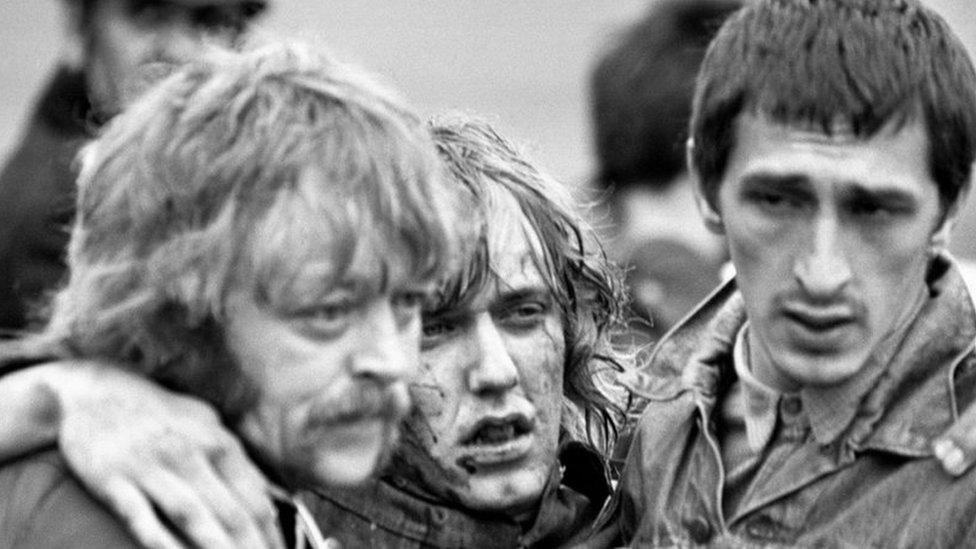
- Published4 March 2024
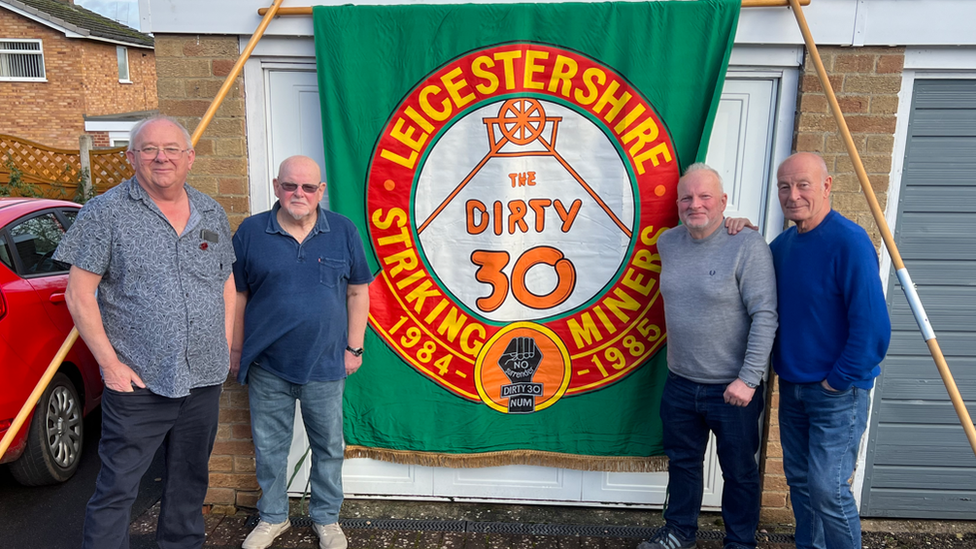
- Published25 February 2024
